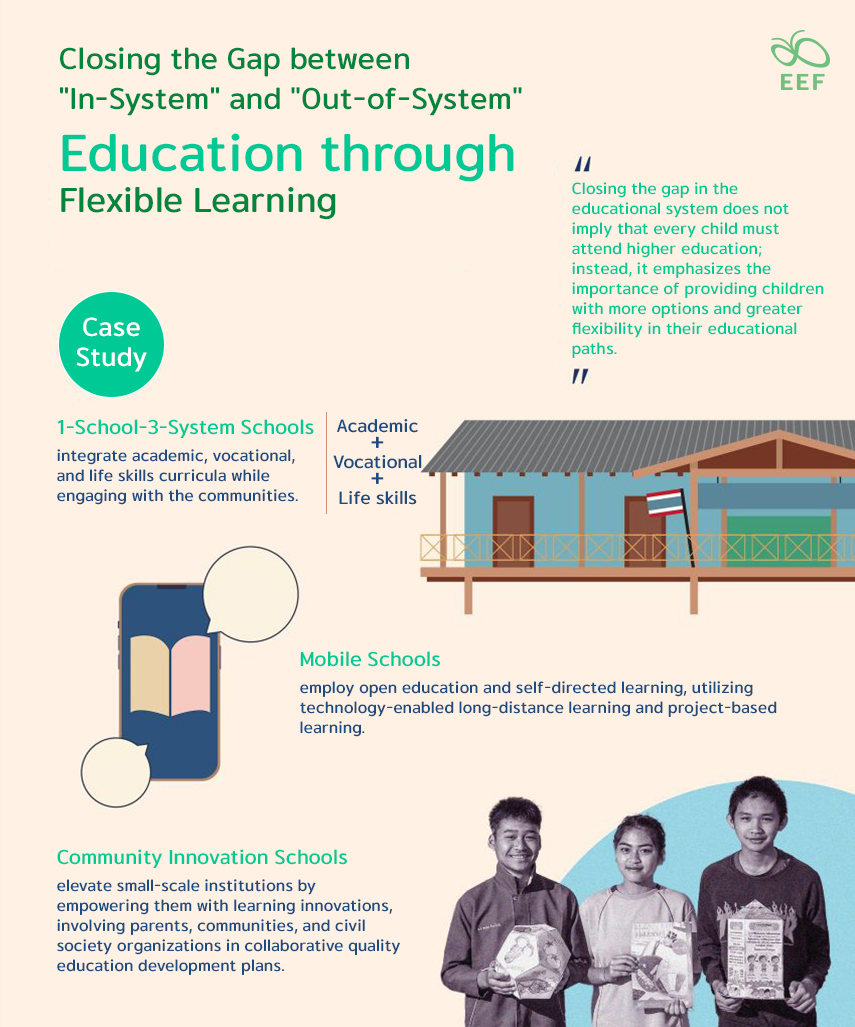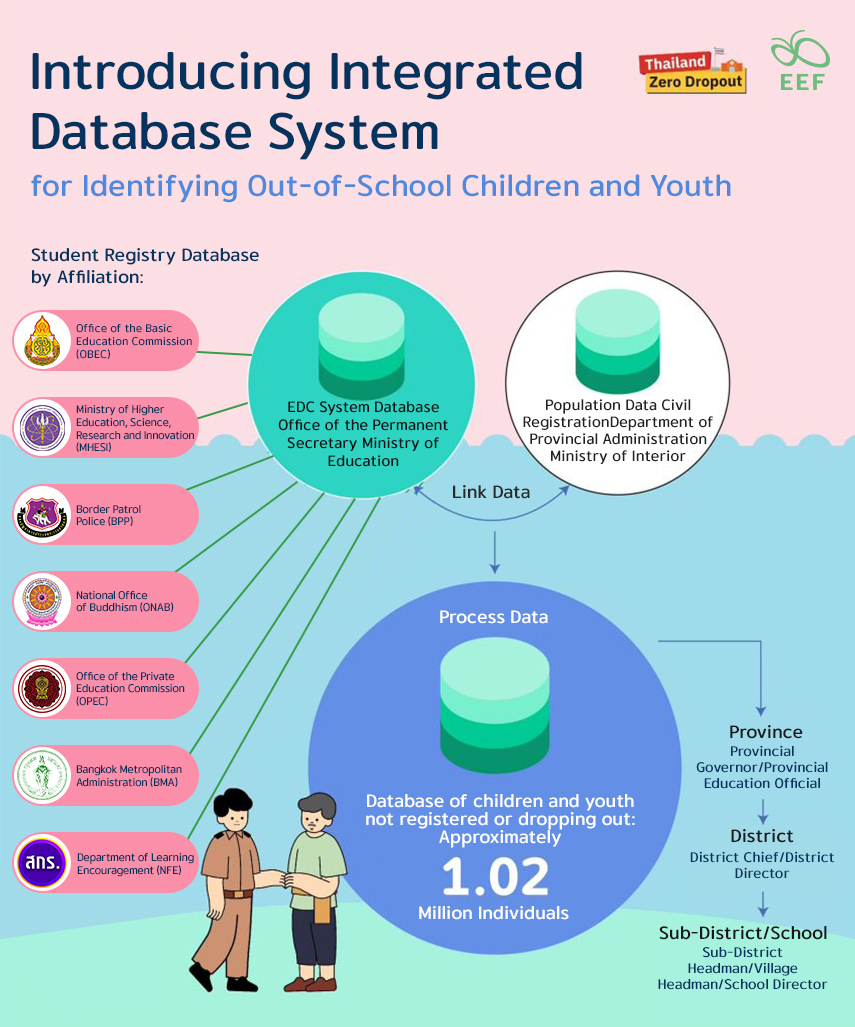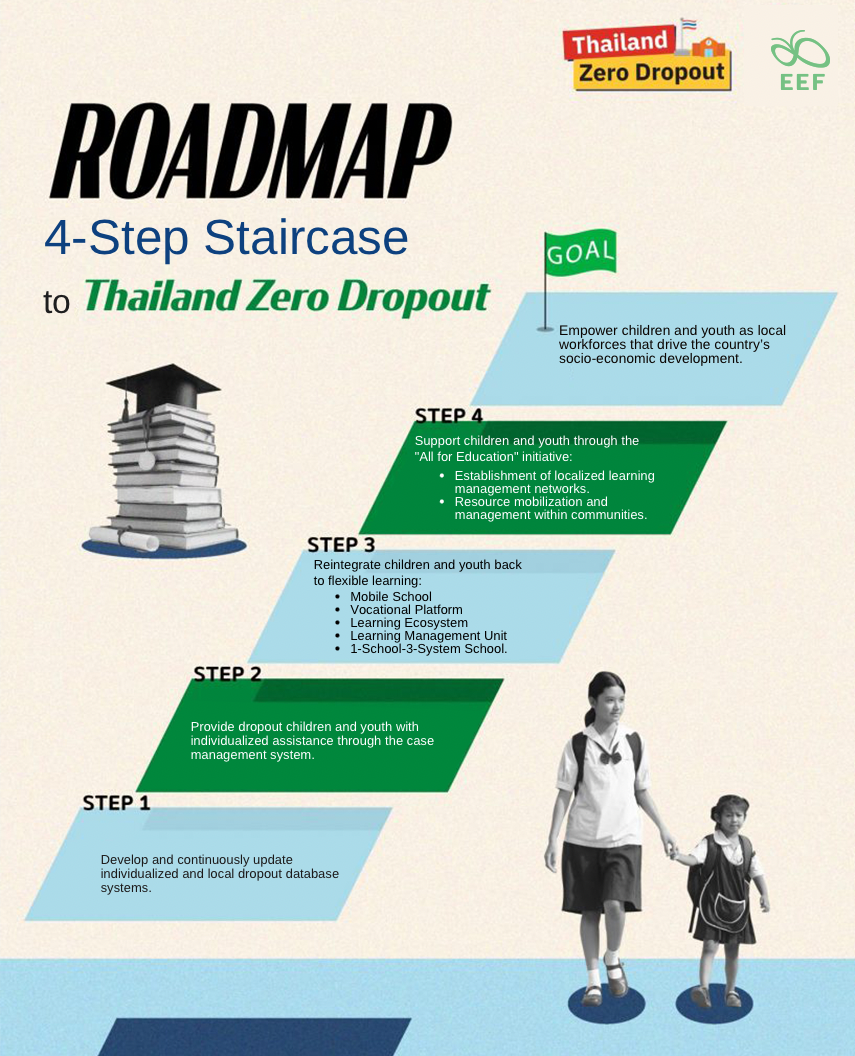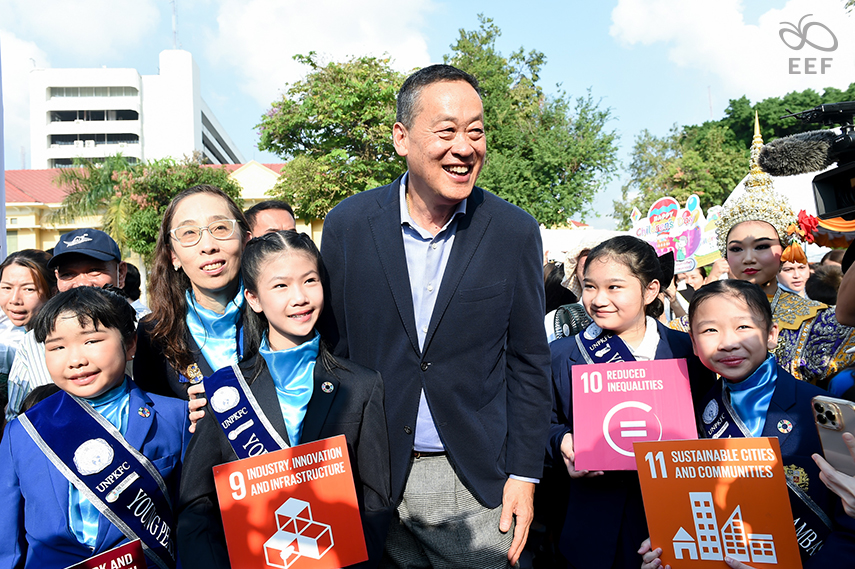
In the face of Thailand’s demographic challenges and economic losses due to dropout rates, the country has embarked on an ambitious journey to combat educational disparities head-on through the aptly named initiative “Thailand Zero Dropout.” With an estimated one million children affected by dropout tendencies, this nationwide effort led by the Equitable Education Fund (EEF) Thailand identifies, reintegrates, and empowers every child within the educational system. Backed by governmental directives and collaborative efforts among key agencies, including the Ministry of Digital Economy and Society (DES), the Ministry of Education (MOE), the Ministry of Interior (MOI), and the Ministry of Public Health (MOPH), this initiative underscores Thailand’s commitment to ensuring educational equity and thereby securing its long-term economic prosperity. As the country charts its course towards a brighter future, societal participation in the “All for Education” movement remains pivotal in breaking down perpetuating glass ceilings and unleashing the potential of every child.

Group 1 consists of children who have never attended pre-primary or primary school, often termed as “lost children.” Efforts are underway to identify and enroll them. Meanwhile, Groups 2 and 3 encompass children who start primary or lower secondary school late or drop out after enrollment, totaling approximately one million children. Efforts to trace and reintegrate them are facilitated by their 13-digit identification numbers. Groups 4 and 5 comprise children at risk of dropping out due to various factors, such as disabilities, poverty, or residing in remote areas, totaling around 2.8 million children. These groups are targeted by the Thailand Zero Dropout initiative for interventions.

Closing the Gap between “In-System” and “Out-of-System” Education through Flexible Learning
“Closing the gap in the educational system does not imply that every child must attend higher education; instead, it emphasizes the importance of providing children with more options and greater flexibility in their educational paths.”
1-School-3-System Schools integrate academic, vocational, and life skills curricula while engaging with the communities.
Mobile Schools employ open education and self-directed learning, utilizing technology-enabled long-distance learning and project-based learning.
Community Innovation Schools elevate small-scale institutions by empowering them with learning innovations, involving parents, communities, and civil society organizations in collaborative quality education development plans.
Not only do the staggering dropout rates among Thai children and youth, exceeding one million, amount to significant economic setbacks and missed prospects, but they also exacerbate socio-economic inequalities. UNESCO‘s findings suggest that reintegrating these individuals back into the educational system could elevate the country’s GDP by a notable 1.7% annually, highlighting the critical urgency for intervention. Thus, the Thailand Zero Dropout initiative endeavors to identify and re-engage these individuals, aiming to bring the dropout rates down to zero. This necessitates offering adaptable learning avenues tailored to diverse needs, utilizing data at various administrative levels for comprehensive outreach. In this context, flexible learning — a groundbreaking pedagogical approach — presents multifaceted routes aligned with local contexts and lifestyles, encompassing skill enhancement, vocational training, and experiential learning programs, thereby thwarting dropout tendencies all while fostering inclusive educational environments.

The Thailand Zero Dropout initiative identifies and reintegrates children and youth back into the educational system while reducing the number of dropouts to zero. To propel this initiative forward, it is imperative to leverage comprehensive data systems. The Equitable Education Fund (EEF) Thailand emphasizes the importance of accurately surveying out-of-school children and youth to understand their locations and provide necessary assistance, requiring collaborative efforts among public agencies. Funded by the EEF, the Ministry of Digital Economy and Society (DES), the Ministry of Education (MOE), the Ministry of Interior (MOI), the Ministry of Public Health (MOPH), and others have joined forces, utilizing big data to aid over 1 million children. Only once these databases are established, and registry data on these children widely known, will subsequent well-informed actions be taken. Nevertheless, success hinges not solely on governmental collaboration but also on societal participation in the “All for Education” movement, ensuring every child achieves their educational aspirations without financial, geographical, or opportunity barriers.

ROADMAP: 4-Step Staircase to Thailand Zero Dropout
GOAL: Empower children and youth as local workforces that drive the country’s socio-economic development.
STEP 1: Develop and continuously update individualized and local dropout database systems.
STEP 2: Provide dropout children and youth with individualized assistance through the case management system.
STEP 3: Reintegrate children and youth back to flexible learning: Mobile School; Vocational Platform; Learning Ecosystem; Learning Management Unit; 1-School-3-System School.
STEP 4: Support children and youth through the “All for Education” initiative: Establishment of localized learning management networks; Resource mobilization and management within communities.
Since taking office, the current government has declared to the parliament one of its key policies: the mission to reduce educational disparities. This declaration led to the inception of the “Thailand Zero Dropout” project, building upon the groundbreaking success of its predecessor, “Zero Dropout: All Children Go to School,” which gave birth to the guiding “Suan Phueng Model.” The Thailand Zero Dropout initiative locates and reintegrates children and youth into the educational system while minimizing the number of dropouts to zero. Directives have been issued to all relevant agencies, including the Equitable Education Fund (EEF) Thailand, the Ministry of Digital Economy and Society (DES), the Ministry of Education (MOE), the Ministry of Interior (MOI), the Ministry of Public Health (MOPH), among many others, to collaborate and initiate efforts, beginning with the establishment of large-scale databases for identifying and assisting the substantial number of affected children and youth, estimated to be over one million.

As part of the Prime Minister Srettha Thavisin’s oversight, the EEF has embraced the Thailand Zero Dropout policy, aligning its mission to connect and rally all sectors of society to drive and enhance educational opportunities, ultimately contributing to the country’s future human resource development. As part of the initial roadmap outlined by the EEF, preparations have commenced since the beginning of 2024, starting with proposals to the Prime Minister himself, followed by the drafting of Memorandums of Understanding (MOUs) to formalize collaboration between various ministries and agencies. Subsequent steps include the formation of provincial task forces before officially kicking off the project.

